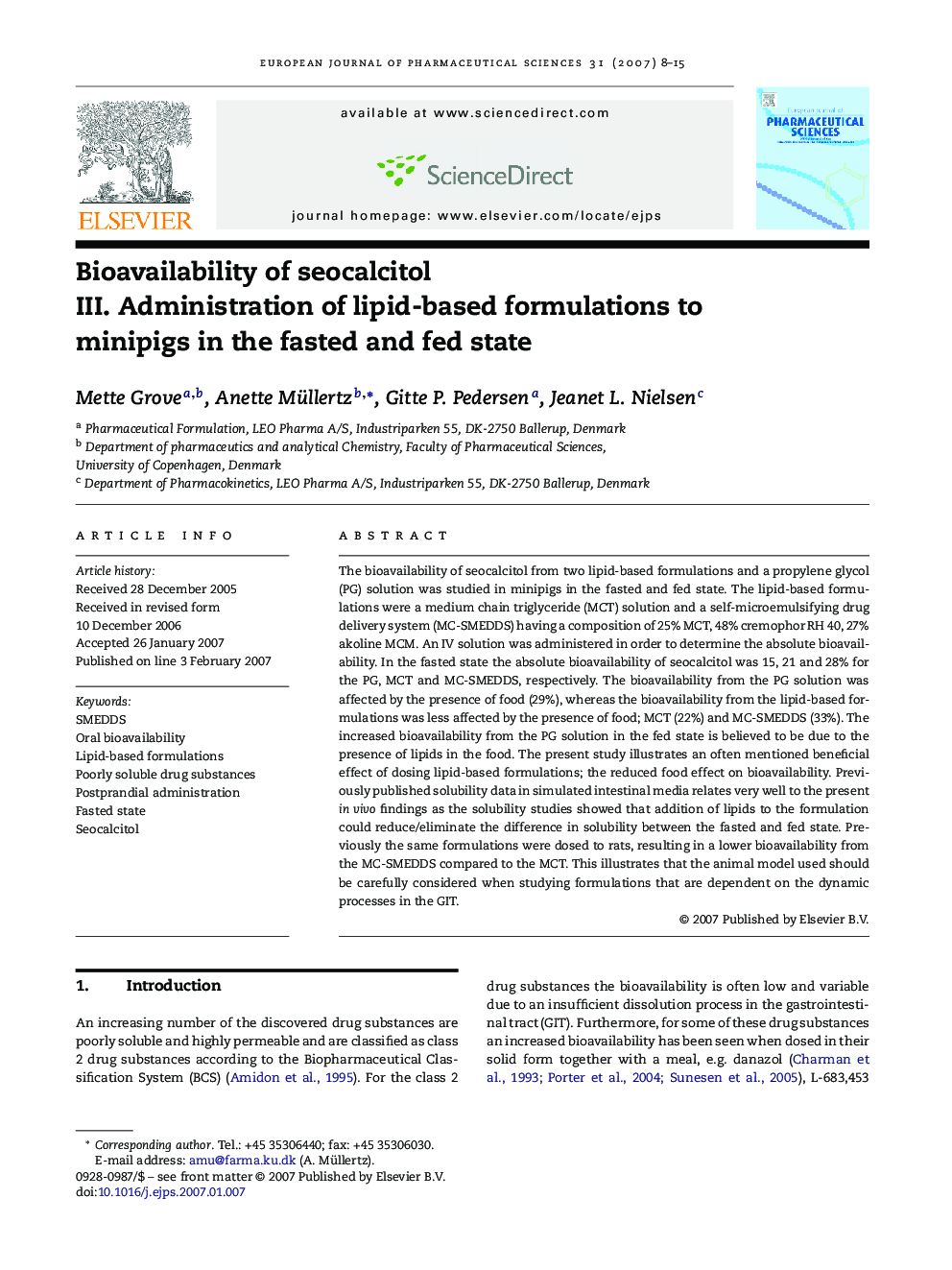| Article ID | Journal | Published Year | Pages | File Type |
|---|---|---|---|---|
| 2482492 | European Journal of Pharmaceutical Sciences | 2007 | 8 Pages |
The bioavailability of seocalcitol from two lipid-based formulations and a propylene glycol (PG) solution was studied in minipigs in the fasted and fed state. The lipid-based formulations were a medium chain triglyceride (MCT) solution and a self-microemulsifying drug delivery system (MC-SMEDDS) having a composition of 25% MCT, 48% cremophor RH 40, 27% akoline MCM. An IV solution was administered in order to determine the absolute bioavailability. In the fasted state the absolute bioavailability of seocalcitol was 15, 21 and 28% for the PG, MCT and MC-SMEDDS, respectively. The bioavailability from the PG solution was affected by the presence of food (29%), whereas the bioavailability from the lipid-based formulations was less affected by the presence of food; MCT (22%) and MC-SMEDDS (33%). The increased bioavailability from the PG solution in the fed state is believed to be due to the presence of lipids in the food. The present study illustrates an often mentioned beneficial effect of dosing lipid-based formulations; the reduced food effect on bioavailability. Previously published solubility data in simulated intestinal media relates very well to the present in vivo findings as the solubility studies showed that addition of lipids to the formulation could reduce/eliminate the difference in solubility between the fasted and fed state. Previously the same formulations were dosed to rats, resulting in a lower bioavailability from the MC-SMEDDS compared to the MCT. This illustrates that the animal model used should be carefully considered when studying formulations that are dependent on the dynamic processes in the GIT.
